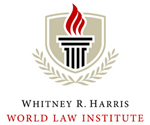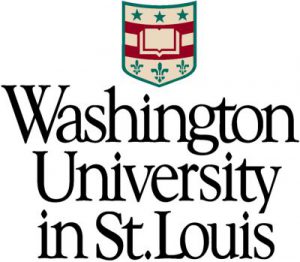 This fall, as the tenth anniversary of the 9/11 attacks rolled around, we witnessed, were silent, were sad, became reflective, and thought back to “THE WAY THINGS WERE BEFORE.” The photo next to this post is from the restaurant that used to sit perched on the 107th floor of the North Tower. Called “Windows on the World,” the restaurant offered an extraordinary panoramic view of New York City, the Atlantic Ocean, and squinting on a clear day, Long Island, New Jersey and even further, rather like the famous New Yorker cartoon of the view from Manhattan. I remember having dinner there once to celebrate my grandmother’s birthday, and having a bit of vertigo as the elevators raced up to the top of the Tower, and a bit of dizziness as I exited to take in the view from the Observation Platform. The Towers were so tall, they seemed almost unreal; they were brash and represented the audacity of a country that had, after all, put a man on the moon! What couldn’t America accomplish if it tried.
This fall, as the tenth anniversary of the 9/11 attacks rolled around, we witnessed, were silent, were sad, became reflective, and thought back to “THE WAY THINGS WERE BEFORE.” The photo next to this post is from the restaurant that used to sit perched on the 107th floor of the North Tower. Called “Windows on the World,” the restaurant offered an extraordinary panoramic view of New York City, the Atlantic Ocean, and squinting on a clear day, Long Island, New Jersey and even further, rather like the famous New Yorker cartoon of the view from Manhattan. I remember having dinner there once to celebrate my grandmother’s birthday, and having a bit of vertigo as the elevators raced up to the top of the Tower, and a bit of dizziness as I exited to take in the view from the Observation Platform. The Towers were so tall, they seemed almost unreal; they were brash and represented the audacity of a country that had, after all, put a man on the moon! What couldn’t America accomplish if it tried.
By September 10th, 2001, that optimism and freedom from fear had disappeared, at least for a time, maybe forever, the world turned upside down by 19 crazy hijackers who brought down four commercial airliners from the skies, and with them, the World Trade Towers, part of the Pentagon, and the lives of forty passengers aboard flight 93, which crashed in Pennsylvania. Thousands of people were killed, and a disaster the likes of which New York and Washington had never experienced unfolded before the eyes of the world, as we watched it, real time, on our television screens. The President was flown to an undisclosed location, the Security Council was convened, and a “war against terror” was launched, a war that continues to this day and is now the longest war the United States has ever fought. Before 9/11, I could travel to conferences and my government commission meetings and my husband and small baby could accompany me to the gate; I could nurse her, kiss them a tender good bye, and go on my way. Now air travel has become something to endure rather than enjoy — humiliating pat downs, body scans that may or may not emit safe levels of radiation, shoes come off, coats come off, liquids are disposed of, liquids are banned, lap tops are checked, long waits are de rigeur — every inconvenience a reminder of the tragedy of 9/11 for Americans, and the thousands who died on that day. Often soldiers are in the airport either deploying abroad or coming home on leave, one of the reminders of this endless war, and a reminder that they have not been honored the way they should be for their service and their sacrifice. I am often singled out for “special” screening because of my last name which identifies me as a person of middle-eastern origin, a prejudice I have had to adapt to, but which often saddens and embarrasses me.
Across the world, 9/11 continues to resonate as well — not only in terms of intrusive security checks, but on the ground for the thousands of Afghans. Iraqis and now Pakistanis who have been killed as a result. Guantanamo Bay has become a symbol of U.S. lawlessness, and a political football in the strange arena of U.S. domestic politics as pundits and politicians debate the best way to try terrorists. The terror those attacks inflicted upon Americans has been reflected back to the part of the world from which they came, violence begetting violence like a biblical parable gone horribly wrong. And the stress on the international legal order threatened to bring the system to the brink of collapse.
This blog will offer some random musings about what international law can offer to help stabilize a world suffering from the PTSD of the 9/11 attacks, as well as comment upon international events. While 9/11 showed us a dark side of the world that we cannot ignore, the courageous reaction to that tragedy by so many ordinary people showed us the resiliency of the human spirit. Law — and education — are not a panacea, but offer a vehicle for reflecting upon, cabining and even transforming evil so as to minimize the nefarious effects it might otherwise produce. Remembering the beauty of the Manhattan skyline at sunset, we remember those who died in the tragedy of September 11th, and can work on behalf of that memory for a more peaceful world for those who were fortunate enough to have survived.

